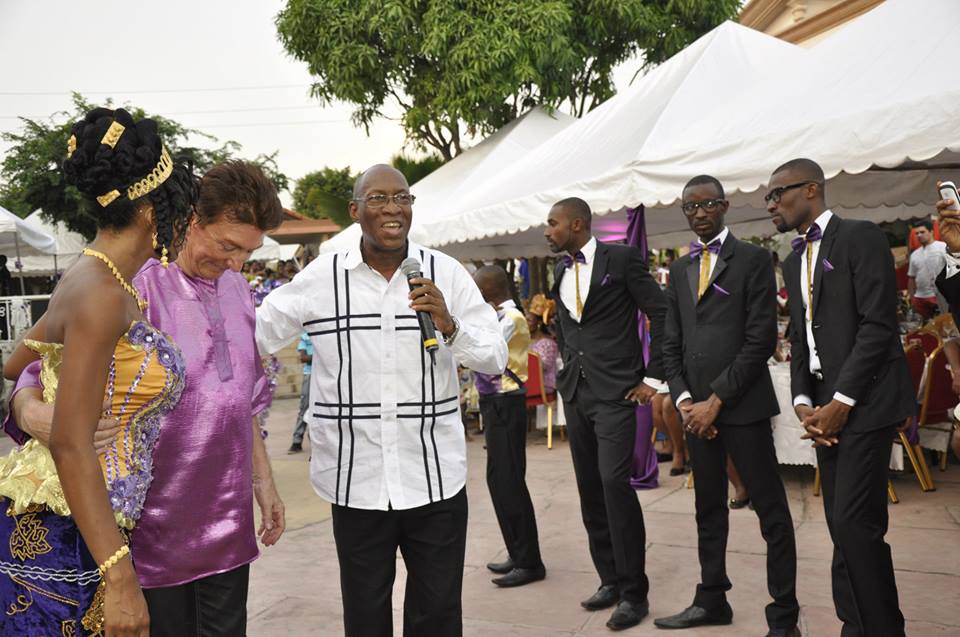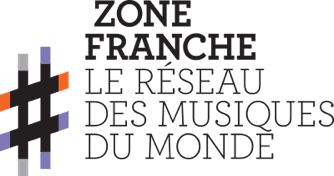The song “Gbaka” by Daouda Le Sentimental saved the life of informal transport in Abidjan in 1976. We take a look at this whistleblowing anthem.
Daouda Koné began working in Ivorian television as a technical controller. During his lunch breaks, he would reel off some of his own compositions on his acoustic guitar to entertain himself and his co-workers. On spotting his talent as a singer-songwriter, his colleagues in production invited him onto their musical variety shows. His romantic, humorous songs were popular with viewers, soon earning him the nickname “Daouda Le Sentimental”. He was compared to GG Vickey, another lyricist and guitarist from Dahomey, present-day Benin, who was popular in the 1960s.
Georges Taï Benson, the then director of programming for the national television network, decided to produce his first 45T entitled “Gbakas”, the name given to informal transport minibuses. Its huge success would see the shelving of a ministerial decree banning this so-called informal transport in Abidjan. Incredible but true!
During the colonial period, the exploitation of cash crops such as coffee, cocoa, rubber and palm oil contributed to the development of an emerging industry in the forested south of Ivory Coast and particularly in Abidjan, the political capital of the time. In vast waves, those living in rural areas and migrants from across West Africa came to populate the plantations and the emerging metropolis of Abidjan in particular, home to the largest port in the Gulf of Guinea and the employer of a sizeable work force. The city of Éburnie was visibly growing and spreading out as far as the eye could see. Outlying areas were swelling with new arrivals from the rural exodus and jobseekers from Ghana, Burkina Faso (Upper Volta at the time), Mali, Senegal, Niger, Guinea, Conakry and so on. There were – and still are – plenty of people to be taken from the suburbs north of the city to the industrial areas and port across the water in the south. It was no surprise that the only state carrier, La Société des Transports Abidjanais (SOTRA), could not meet the growing demand.
Historically, in the tropics, whenever the state shows itself to be lacking, the people have come up with a solution. And this was no exception: private companies entered the public transport fray in Abidjan, with vehicles that, for the most part, were in a suspect technical state, their patched-up engines and bodywork leaving much to be desired. These vehicles may not necessarily have provided reassurance, but the most important thing was that they went, conveying workers from home to their jobs. As they drove, their scrap metal made a “Gbaka! Gbaka! Gbaka!” sound as it clanked together. This onomatopoeia would later give its name to all informal transport minibuses.
Not only was the ride cheaper than the SOTRA ticket, but stops were made at the request of passengers. “Driver! I’m getting off by the pharmacy; I need to go to the little market; my stop is by the three coconut palms” etc.
But despite their undeniable social importance, there was no getting away from the fact that gbakas caused more than their fair share of accidents. But how helpful they were to the vast majority of people living in the commuter districts!
Faced with traffic chaos caused by these gbakas, coupled with frequent accidents, in 1976, the Ivorian Minister for Public Transport issued a bill that would see gbakas removed from Abidjan’s roads. Those at the bottom of the social ladder were dismayed, as were the emerging middle class of civil servants and technicians working for companies or radio and television services, such as Daouda Koné, who would strum away at his guitar between productions, whispering mushy ditties, among other refrains. His repertoire included a handful of improvised social commentaries.
He lived in the large outlying district of Yopougon and was just as concerned about the plan to ban the disparaged transport as everyone else. Quick as a flash, he laid down the song “Gbaka”, a crisp and colorful plea, spiced with metaphors carried by an innocent tone. The lyrics depict life inside a working gbaka. The amateur musician played all the characters and passengers, as well as the apprentice (the driver’s assistant).
Hamed Touré, host of Radio Côte-d’Ivoire’s morning show, played the song on repeat. The effect was viral; it spread across the country. In every backstreet tavern, maquis (working-class Ivorian restaurant), snack kiosk and office, Daouda’s “Gbaka” sparked public debate about the Minister for Transport’s unacceptable plan. In this decade of economic prosperity in the country of Houphouët-Boigny – the founding father of independence – revolution was in the air. The palpable discontent rose to the highest levels of government and the decree was suspended by the leader’s unilateral decision. Informal transport continued unabated, but gbakas became forced to undergo roadworthiness tests.


